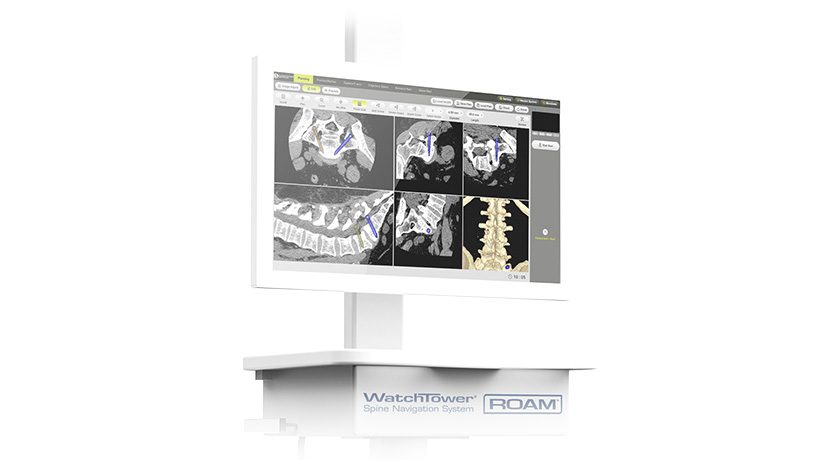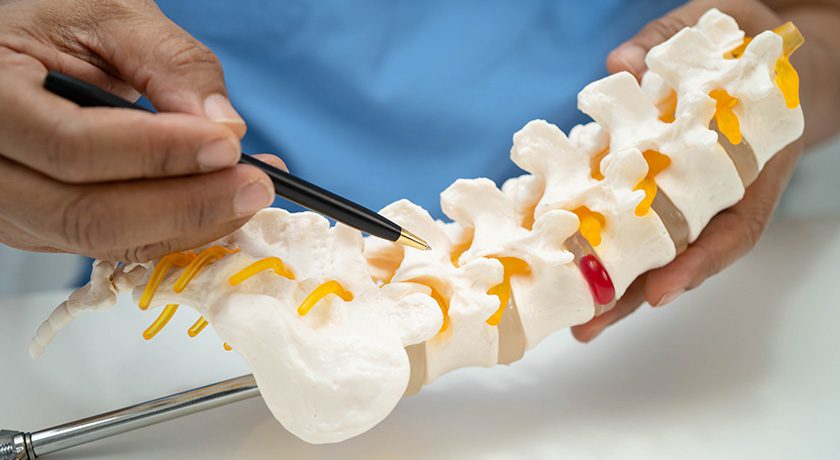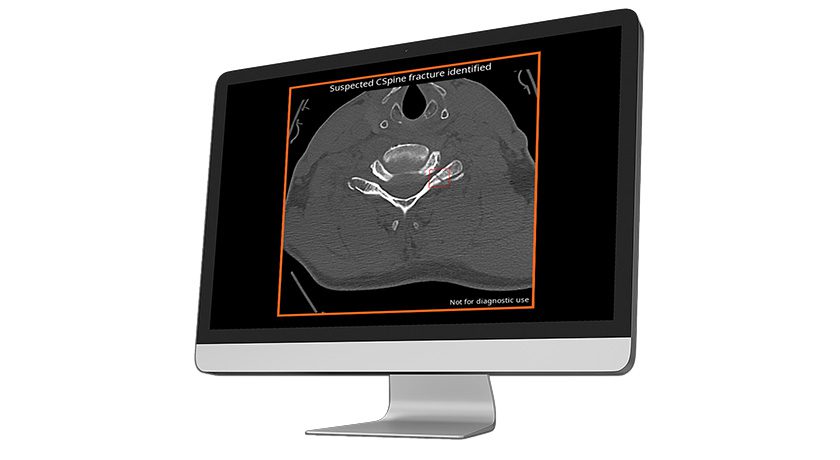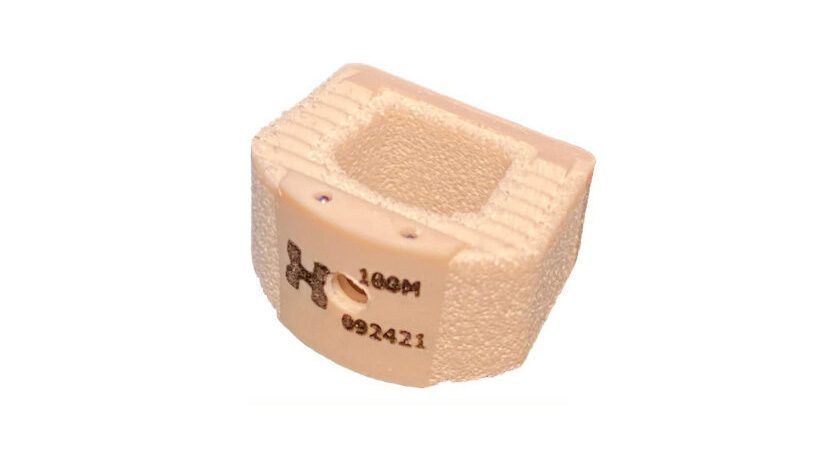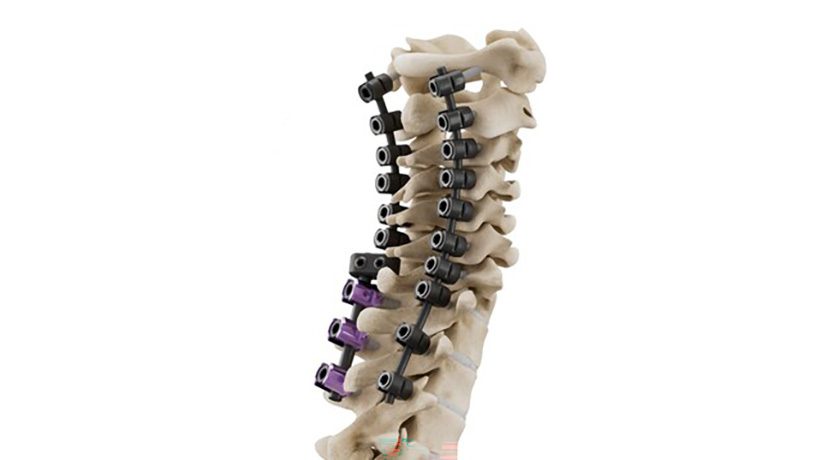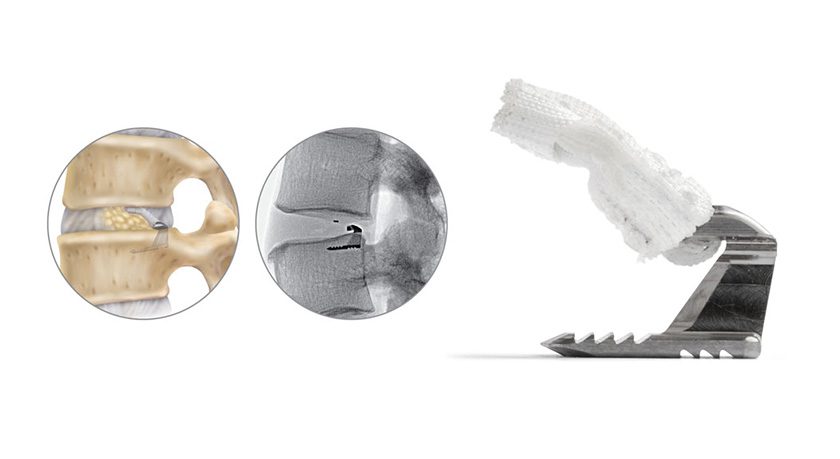

 Copy to clipboard
Copy to clipboard 
For the first time, Intrinsic Therapeutics’ Barricaid device has been successfully implanted in several patients while they were awake and without the use of general anesthesia.
Barricaid is a proprietary technology designed to prevent reherniation and reoperation in patients with large annular defects following lumbar discectomy surgery. Barricaid has been implanted in over 12,000 patients and is supported by clinical studies across eight distinct patient populations, including two randomized controlled trials and six single-arm studies. A multicenter, Level I RCT demonstrating superior outcomes to discectomy alone was published in JAMA with five-year follow-up results.
During awake surgery a patient is given local and regional anesthetic, ensuring that no pain is felt during the procedure. The surgeon is able to examine the patient’s neurologic condition during surgery and help the surgeon locate the pain generator. The patient remains alert and is able to communicate with the surgeon throughout the operation. Direct feedback helps encourage safer handling of neurologic structures. Patients often experience faster recovery, quicker mobilization, and reduced overall pain levels compared to traditional spine surgery.
Jake Tanner, Vice President of Marketing for Intrinsic Therapeutics, stated, “As clinical acceptance of Barricaid grows, it is inspiring to see surgeons combining advanced techniques with Barricaid for an optimized discectomy solution. Surgeons are starting to realize that Barricaid is compatible with most discectomy approaches for indicated patients. This is a win/win for the surgeon and the patient.”
Source: Intrinsic Therapeutics, Inc.
For the first time, Intrinsic Therapeutics' Barricaid device has been successfully implanted in several patients while they were awake and without the use of general anesthesia.
Barricaid is a proprietary technology designed to prevent reherniation and reoperation in patients with large annular defects following lumbar discectomy surgery....
For the first time, Intrinsic Therapeutics’ Barricaid device has been successfully implanted in several patients while they were awake and without the use of general anesthesia.
Barricaid is a proprietary technology designed to prevent reherniation and reoperation in patients with large annular defects following lumbar discectomy surgery. Barricaid has been implanted in over 12,000 patients and is supported by clinical studies across eight distinct patient populations, including two randomized controlled trials and six single-arm studies. A multicenter, Level I RCT demonstrating superior outcomes to discectomy alone was published in JAMA with five-year follow-up results.
During awake surgery a patient is given local and regional anesthetic, ensuring that no pain is felt during the procedure. The surgeon is able to examine the patient’s neurologic condition during surgery and help the surgeon locate the pain generator. The patient remains alert and is able to communicate with the surgeon throughout the operation. Direct feedback helps encourage safer handling of neurologic structures. Patients often experience faster recovery, quicker mobilization, and reduced overall pain levels compared to traditional spine surgery.
Jake Tanner, Vice President of Marketing for Intrinsic Therapeutics, stated, “As clinical acceptance of Barricaid grows, it is inspiring to see surgeons combining advanced techniques with Barricaid for an optimized discectomy solution. Surgeons are starting to realize that Barricaid is compatible with most discectomy approaches for indicated patients. This is a win/win for the surgeon and the patient.”
Source: Intrinsic Therapeutics, Inc.

You’ve reached your limit.
We’re glad you’re finding value in our content — and we’d love for you to keep going.
Subscribe now for unlimited access to orthopedic business intelligence.
JV
Julie Vetalice is ORTHOWORLD's Editorial Assistant. She has covered the orthopedic industry for over 20 years, having joined the company in 1999.


